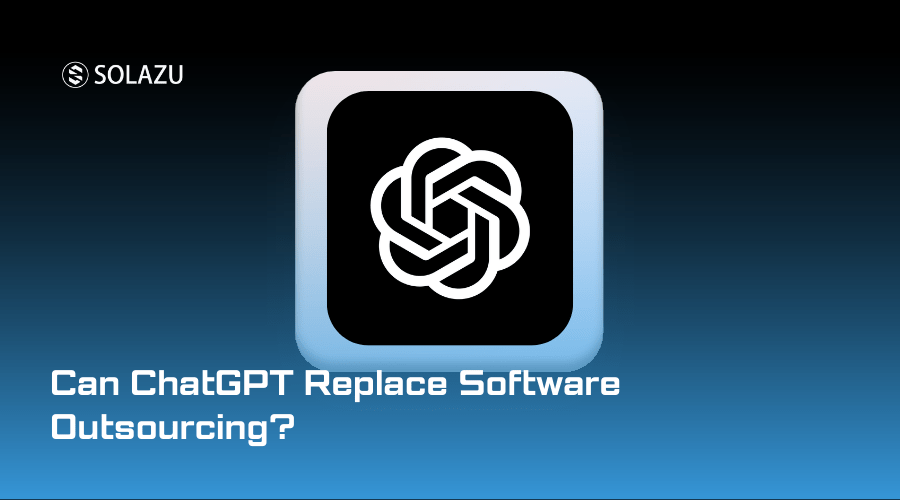Chatbots and conversational AI are emerging technologies that have gained much attention in recent years. ChatGPT is an AI-based model that can engage in natural language conversations with humans, answer queries, provide recommendations, and even write articles on different topics. Given the rapid progress of ChatGPT and similar conversational AI models, there has been speculation on whether they can replace the need for software outsourcing. In this article, we explore this question and examine the potential of ChatGPT in the software development industry.
ChatGPT is a powerful tool that can perform many tasks related to software development. For instance, ChatGPT can help companies to automate their customer support by providing real-time responses to customer queries. This can help businesses save time and resources as they can reduce the number of customer support staff required. Additionally, ChatGPT can assist in software development by generating code, writing scripts, and even identifying and fixing bugs in code. These functionalities suggest that ChatGPT can be an essential tool for software development.
However, it is important to note that ChatGPT is not designed to replace human software developers or software outsourcing altogether. ChatGPT is an AI model that has been trained on large datasets to provide accurate and relevant responses to queries. However, it is not a software developer in the traditional sense. ChatGPT may be able to automate some of the routine tasks involved in software development, but it cannot replace the creativity, expertise, and experience of a human software developer.
Moreover, ChatGPT is limited by the data it has been trained on. While it can provide responses to a wide range of queries, it is not capable of understanding and solving all types of software development problems. For example, ChatGPT may not be able to design a complex software system that requires an in-depth understanding of the software development process. Similarly, ChatGPT may not be able to develop software for specific industries that require domain-specific knowledge and expertise.
Despite these limitations, ChatGPT can still be a valuable tool in software development. It can help reduce the workload of software developers by automating some of the routine tasks. This can free up time for software developers to focus on more critical and creative tasks, such as designing and implementing new features. Additionally, ChatGPT can help improve the overall quality of software development by identifying and fixing bugs in the code.
In conclusion, while ChatGPT and similar conversational AI models are powerful tools that can automate some of the routine tasks involved in software development, they are not designed to replace human software developers or software outsourcing altogether. ChatGPT is limited by the data it has been trained on and may not be capable of understanding and solving all types of software development problems. Nonetheless, ChatGPT can still be a valuable tool in software development by assisting software developers and improving the overall quality of software development. Therefore, software developers and businesses should view ChatGPT and similar conversational AI models as complementary tools that can help improve their software development processes.
